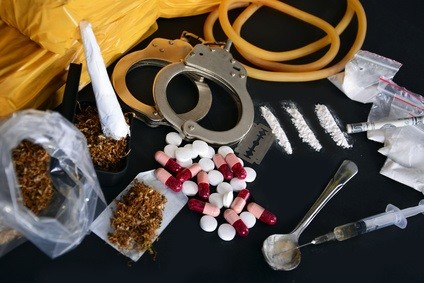 Last week California Governor Jerry Brown released a list of 72 individuals he has pardoned, including several involving crimes committed in the San Diego area. Those pardoned had been convicted of a wide variety of offenses, ranging from marijuana possession to animal cruelty to arson. A pardon is an act by the governor representing forgiveness for a crime. The conviction is no longer part of the record of the person pardoned, and that person is freed from any further punishment associated with the offense.
Last week California Governor Jerry Brown released a list of 72 individuals he has pardoned, including several involving crimes committed in the San Diego area. Those pardoned had been convicted of a wide variety of offenses, ranging from marijuana possession to animal cruelty to arson. A pardon is an act by the governor representing forgiveness for a crime. The conviction is no longer part of the record of the person pardoned, and that person is freed from any further punishment associated with the offense.
According to the Governor’s Office, a gubernatorial pardon will only be granted to those who have shown “exemplary behavior” since their conviction. However, we’ve reviewed the list, and we are convinced that there is something at work in the pardoning scheme that goes beyond a demonstration that a person has changed his or her ways.
To understand our logic, let’s look at the categories of crimes which were the subject of the pardons:
- Theft Crimes (burglary, grand theft, embezzlement, receiving stolen property, taking vehicle without consent.)
- Violent Crimes (assault, battery, domestic violence.)
- Driving Under the Influence.
- Drug Crimes (using or being under the influence, possession of marijuana and other controlled substances, sale, possession with intent, transporting, manufacturing, cultivating, etc.).
- Miscellaneous Offenses.
If you add up the number of pardons in each category, here is how the (approximate) percentages break down:
- Theft. 22%
- Violence. 4%
- DUI. 4%
- Drugs. 61%
- Miscellaneous. 9%
If it appears to you that the focus here is not exclusively about post-conviction behavior, then you understand what we’ve been talking about. Over 60% of the pardons are for specific drug crimes, and if you add in a portion of the theft crimes (many were likely committed by addicts to feed their habit), the percentage relating to drugs is even higher, perhaps more than 80%.
You may agree or disagree with the idea that many people involved with drugs do not deserve harsh treatment in the criminal justice system. But the consensus appears to be along the lines of the actions by Governor Brown. Indeed, when President Obama issued his final group of commutations the day before he left office, one analysis showed that about 98% were for people convicted of drug crimes.
Law Office of David P. Shapiro
3500 5th Avenue, Suite 304,
San Diego, CA 92103
(619) 295-3555



